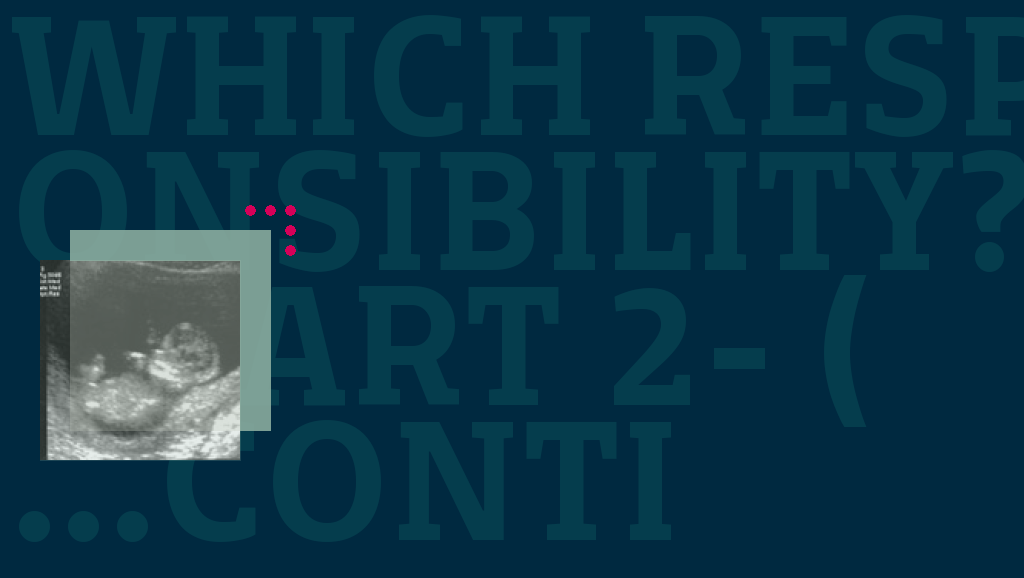First of all thanks to all those who have so far contributed to this call for comments, which I plan to close on April 1st. I briefly recapitulate the line of reasoning followed so far.
We launched this call with the intention of debating how to re-define the notion of “responsibility in innovation”, with respect to the contemporary scenarios of globalization and the epistemological notion of complexity.
The challenge is to re-think the notion of responsibility. Particularly, we would like to consider the opportunities, and the drawbacks, of substituting the idea of a good procedure to that of a good value. In other words, the question of responsibility would shift from a responsible individual who responds to values, to a responsible procedure or process that responds to pre-defined parameters. Both the epistemological and the political outcomes of such shift are worth considering.
Innovation, by definition, excludes a comprehensive rational calculus. Innovation always contains an element of risk, of creativity and, sometimes, of passion. This emerged clearly from the recent lecture course by the Bassetti Foundation at the University Carlo Cattaneo – LIUC of Castellanza (the Notebooks of which are in the press).
An interesting reflection on this aspect can be found in Michael Power’s article, From Risk Society to Audit Society, which links up explicitly Beck’s notion of risk society with Strathern’s definition of an audit culture. In a risk society, “new information structures are required in order to challenge and shift the boundaries between insiders and outsiders and to reconnect decision makers with their remote publics”. As a result, “audit represents a distinctive style of risk management”. The notion of risk, in fact, is always relative to a theory of knowledge: “ways of knowing are ways of being ignorant”. Beck’s notion of a risk society can thus be read as the political translation of an epistemological notion, that of a complex system. Amongst the political aspects of an epistemology of risk, then, the most disturbing is that “other disciplines, such as accounting, have begun to replace the cultural authority of science” – and I would add, of a political science. This happens because “accounting as a technology for managing uncertainty translates the spontaneous disturbances of daily transactions into manageable data for decision making purposes”.
The Foundation has always maintained that innovation does not coincide with creativity or creative thinking alone. One can speak of innovation only when something improbable is made real: an object, a course of action or a system of practice that exerts durable influence on society. To schematise it grossly, we are therefore in the field of action rather than thought. It would be interesting to depart slightly from this position and consider responsibility in innovation in terms of responsibility in the production of knowledge. The recent interview to Ignacio Chapela by Jeff Ubois follows exactly this course. Chapela maintains that responsibility in innovation consists in guaranteeing diversity of thought against hyper specialisation, analogously to biodiversity. This is why his critique of the vicious circles in the peer-review system deserves attention beyond his personal plight. Indeed, it would be convenient for the scientific establishment to show that they are facing the issue of their responsibility in order to gain more credit amongst the public.
Which only re-launches the question: which tools would be needed in order to ascertain the presence of responsibility? in order to answer, one should be able to define each time the context, the influence and the scale of the effects of each innovation. Latour poses this problem when he advocates a Parliament of things (in his Lecture No Innovation without Representation!, shortly in press in the Lectures della Fondazione Giannino Bassetti, 2002-2005. A Parliament of Things is a provocation to think about the social, demographic and natural contexts of innovative action.
Innovation, though, is not only in the hands of scientists. The Foundation has been underlining the historical and political role of innovators who change lifestyles and worldviews by introducing relevant objects and efficacious courses of action in everyday routine (take for instance the personal computer, interfaces and software, but also the miniskirt, plastic plates and cups, etc….) One should ask whether such innovators are aware of their relevance in history, and whether they consider the political outcomes of their actions. Do they pose themselves the question of the aims and scopes of their innovations?
One would think not, if, as Nicholas Rose notices in his conversation with Daniele Navarra (Science, politics and responsibility: an agenda for the governance of innovation and technology), “What biotechnology, genetics and technologies of information and communication have in common is that have been introduced without the possibility to predict what the medium to long term implications would be. No one though that these innovations would have advanced humanity and make available new sources of knowledge in the way the Internet did. However, no one thought that it would also help pornographers or be used to make public the sequencing of the human genome”.
The initial questions are all open, and I sum them up thus:
1. Which politics of culture can increase public sensibility towards the responsibility of innovation?
2. How could one measure and/or implement the degree of responsibility of an innovator?
3. How much is responsibility in innovation defined by context, and by the various actors that interact in it?
4. How can we envisage responsible scenarios of innovation? Can one cite a few that have been implemented?
















